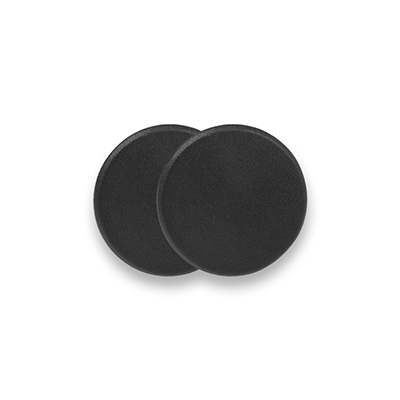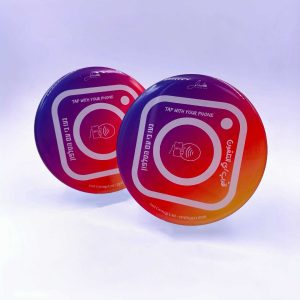In today’s fast-paced world, businesses are constantly seeking innovative solutions to enhance security, improve efficiency, and streamline operations. One technology that has emerged as a game-changer in various industries is Radio Frequency Identification (RFID) tags. While off-the-shelf RFID tags offer a range of benefits, customizing RFID tags to suit specific needs and requirements can unlock even greater advantages.
Understanding RFID Tags
What are RFID Tags?
RFID tags are small electronic devices that utilize radio waves to transmit data wirelessly. They typically consist of an integrated circuit and an antenna, enclosed in a protective casing. RFID tags come in various forms, including passive, active, and semi-passive, each with its own unique characteristics and functionalities.
Types of RFID Tags
There are several types of RFID tags available, including passive RFID tags, active RFID tags, and semi-passive RFID tags. Passive tags do not have an internal power source and rely on the energy transmitted by RFID readers to power the chip and transmit data. Active tags, on the other hand, have their own power source and can transmit data over longer distances. Semi-passive tags have an internal power source for the chip but rely on RFID readers for data transmission.
Importance of Custom RFID Tags
Custom RFID tags offer businesses the flexibility to tailor RFID solutions to their specific needs and requirements. By customizing RFID tags, businesses can maximize the benefits of RFID technology and address unique challenges and constraints.
Benefits of Custom RFID Tags
Enhanced Security
Custom RFID tags can be designed with advanced security features, such as encryption and authentication, to prevent unauthorized access and counterfeiting. This is particularly important in industries such as healthcare, pharmaceuticals, and manufacturing, where product authenticity and security are paramount.
Improved Inventory Management
By customizing RFID tags to include unique identifiers and data fields, businesses can track and manage inventory more accurately and efficiently. Custom RFID tags enable real-time visibility into inventory levels, location tracking, and asset utilization, leading to reduced stockouts, improved order fulfillment, and optimized supply chain operations.
Increased Efficiency
Custom RFID tags can streamline business processes and workflows, reducing manual labor and human error. By automating data capture and transactional processes, businesses can accelerate operations, minimize downtime, and enhance overall efficiency.
Factors to Consider When Customizing RFID Tags
Material
The material used in RFID tag construction can impact performance and durability. When customizing RFID tags, it’s essential to select materials that are suitable for the intended application and environmental conditions.
Size and Shape
Custom RFID tags come in a variety of sizes and shapes to accommodate different assets and applications. When designing RFID tags, it’s important to consider the size and shape constraints of the items being tagged, as well as the placement and mounting options available.
Frequency
RFID tags operate at different frequencies, each with its own advantages and limitations. When customizing RFID tags, businesses must choose the appropriate frequency for their specific use case, taking into account factors such as read range, interference, and regulatory requirements.
How to Customize RFID Tags
Design and Encoding
Customizing RFID tags involves designing the tag layout and encoding the necessary data onto the tag’s integrated circuit. This process typically requires specialized software and equipment, as well as expertise in RFID technology and standards.
Testing and Quality Assurance
Before deploying custom RFID tags in a production environment, it’s essential to conduct thorough testing and quality assurance to ensure optimal performance and reliability. This may involve testing tag readability, durability, and compatibility with RFID readers and systems.
Applications of Custom RFID Tags
Custom RFID tags have a wide range of applications across various industries, including:
- Asset Tracking: Custom RFID tags can be used to track and manage assets such as equipment, vehicles, and tools.
- Access Control: Custom RFID tags enable secure access control for buildings, facilities, and restricted areas.
- Supply Chain Management: Custom RFID tags facilitate real-time tracking and visibility of goods throughout the supply chain, from manufacturing to distribution to retail.
Case Studies: Successful Implementations
Several businesses have successfully implemented custom RFID tag solutions to address specific challenges and achieve measurable results. Case studies provide valuable insights into the potential benefits and ROI of custom RFID tags across different industries and use cases.
Challenges and Solutions
Interference
RFID tag performance can be affected by interference from other electronic devices or environmental factors. To mitigate interference, businesses can employ techniques such as frequency hopping and antenna design optimization.
Cost
Custom RFID tag solutions may require upfront investment in equipment, software, and implementation services. However, the long-term benefits, such as improved efficiency, productivity, and cost savings, often outweigh the initial costs.
Compatibility
Ensuring compatibility between custom RFID tags and existing RFID infrastructure, systems, and standards is crucial for seamless integration and interoperability. Businesses should carefully evaluate compatibility requirements and work closely with RFID technology partners to address any compatibility issues.
Future Trends in Custom RFID Tags
The future of custom RFID tags is marked by advancements in technology, such as miniaturization, enhanced performance, and increased connectivity. Emerging trends, such as the Internet of Things (IoT) and edge computing, are driving demand for more intelligent and interconnected RFID solutions.
Conclusion
Custom RFID tags offer businesses a powerful tool for enhancing security, improving efficiency, and optimizing operations across various industries and applications. By customizing RFID tags to suit specific needs and requirements, businesses can unlock a range of benefits, from enhanced asset tracking and inventory management to increased productivity and cost savings.
FAQs
-
Can RFID tags be reused?
- Yes, RFID tags can be reused multiple times, making them a cost-effective solution for asset tracking and inventory management.
-
Are RFID tags secure?
- Custom RFID tags can be equipped with advanced security features, such as encryption and authentication, to prevent unauthorized access and counterfeiting.
-
What is the range of RFID tags?
- The range of RFID tags varies depending on factors such as frequency, power source, and environmental conditions. Passive RFID tags typically have a shorter range than active RFID tags.
-
How long do RFID tags last?
- The lifespan of RFID tags depends on factors such as environmental conditions, usage frequency, and quality of construction. High-quality RFID tags can last several years or even decades.
-
Can RFID tags be tracked remotely?
- Yes, RFID tags can be tracked remotely using RFID readers and antennas, enabling real-time visibility and monitoring of tagged assets and inventory.
















